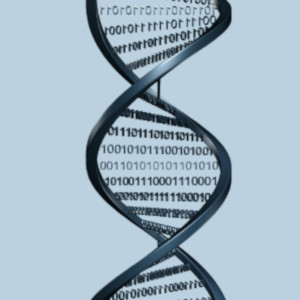Share this page:

About
ISO/TC215 launched its first Subcommittee in the fall of 2019: SC1 Genomics Informatics. Subcommittees in ISO are a key structure for delivering standards and are formed within and aligned to the parent committee, which for SC1 is the ISO/Technical Committee 215 - Health Informatics. Subcommittees identify, develop, ballot and publish standards for a domain of interest that is within the domain of the parent committee.
The Genomics Informatics Subcommittee enables TC 215 to offer a more focused program of international standardization for omics data, information and associated knowledge to support improvements in clinical care, population health, precision medicine and clinical research. This Standards Council of Canada SC1 Mirror Committee provides the coordination, communications, work item commenting, balloting and voting for Genomics Informatics standards.
Scope
Standardization of computable data, information, and knowledge, including their representation and metadata, for the application of omics, including but not limited to genomics1, phenomics2 and proteomics3, to support human health and clinical research.
Join us
Membership is open to Canadian experienced experts in the field of health informatics and genomics informatics.
Participate
Post your comments or questions in the forum and also feel free to reach out to the ISO/TC215 SC1 Mirror Committee Chair and Head of SC1 Delegation, Grant Gillis or the SC1 Mirror Committee Administrator, Don Newsham.
Current work items (as of Jan 2020)
- ISO/TS 20428:2017 Health Informatics - Data elements and their metadata for describing structured clinical genomic sequence information in electronic health records
- ISO/WD TS 22693 Health Informatics - Structured clinical gene fusion report in electronic health records
- ISO 25720:2009 Health Informatics - Genomic Sequence Variation Markup Language (GSVML)
- ISO/WD TS 22690 Health Informatics - Reliability assessment criteria for high-throughput gene-expression data
- ISO/WD TS 23357 Genomics Informatics - Clinical genomics data sharing specification for next generation sequencing
- ISO/CD TS 22692 Genomics Informatics - Quality Control metrics for DNA Sequencing
- ISO/CD TR 21394.2 Genomics Informatics - Whole genome sequence markup language (WGML)
- ISO/DIS 21393 Genomics informatics - Omics Markup Language (OML)
- ISO/PWI Genomics Informatics - Description Rules for Genomics Data for Genetic Products and Services
- ISO/PWI Genomics Informatics - General Guidelines for Describing the Tumor Mutation Burden (TMB) information of Clinical Massive Parallel DNA Sequencing
- ISO/PWI Genomics Informatics - General Guidelines for Describing the Microsatellite Instability (MSI) information of Clinical Massive Parallel DNA Sequencing
- ISO/PWI Genomics Informatics - Phenopackets: A Format for Phenotypic Data Exchange (a uniquely Canadian work item and project in conjunction with Global Alliance for Genomics and Health (GA4GH))
Background
Genomic or colloquially 'genetic' testing is becoming a regular, common part of the delivery of clinical as well as preventive care and the foundation for precision personalized medicine across the healthcare spectrum. The effective use of genomic testing and related technologies involves and is only possible through the capture, processing and analysis of massive amounts of data, the informatics basis of the field of genomics.
ISO/TC 215 has been involved in clinical genomics standardization since 2005, and published the first edition of ISO 25720 Health informatics - Genomic Sequence Variation Markup Language (GSVML) in 2009. ISO/TC 215 WG2 previously had 7 genomics/omics work items in various stages of development. Aspects being addressed by those standards include markup languages used to describe attributes of genomics/omics data sets, quality control metrics for sequencing processes and outputs, and specifications for sharing of genomics/omics data, clinical genomics reporting, and incorporation of genomics/omics information in electronic health records.
Collaboration with other standards
With genomics/omics as a rapidly growing field there is pressing need for relevant international standards and for further collaboration with other organizations that have been working on specifications and standards based on their own scope and user community needs, including but not limited to the HL7 International Clinical Genomics (CG) work group, Global Alliance for Genomics and Health (GA4GH), ISO/TC 276 Biotechnology, SNOMED International, ISO/IEC JTC 1/SC29, Massive Analysis and Quality Control (MAQC), CDISC and LOINC.
To support that collaboration, Subcommittee 1 – Genomics Informatics has already setup liaisons with the Global Alliance for Genomics and Health (GA4GH), with ISO/TC 276 Biotechnology, with ISO/IEC JTC1/SC29 Coding of Audio, Picture, Multimedia and Hypermedia Information and anticipates further liaisons in the months ahead.
NOTES
Activity
Events
Upcoming events:
| No events |
Forum
Documents
Click Manage documents to:
- view the complete list of documents or documents grouped by folder
- upload a new document
